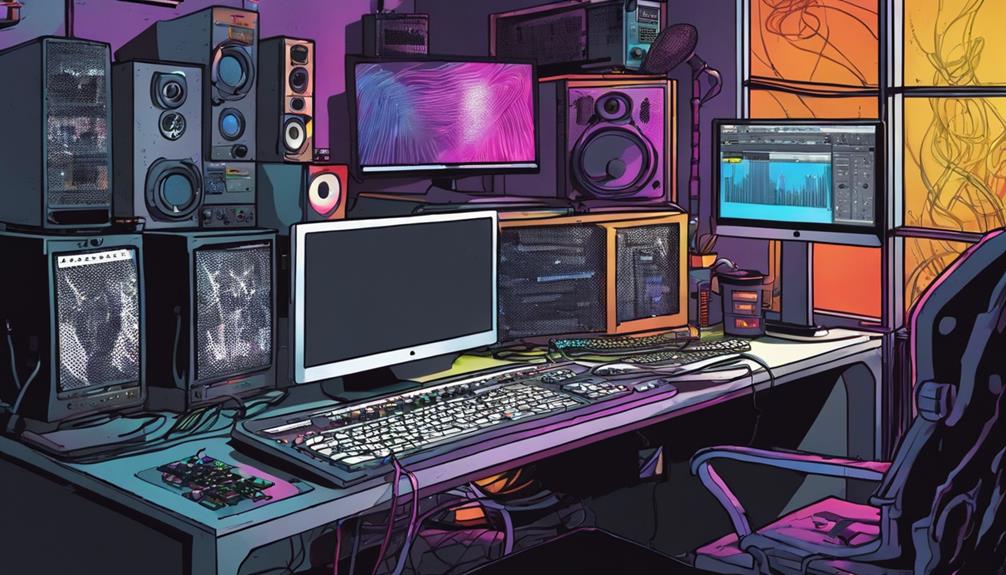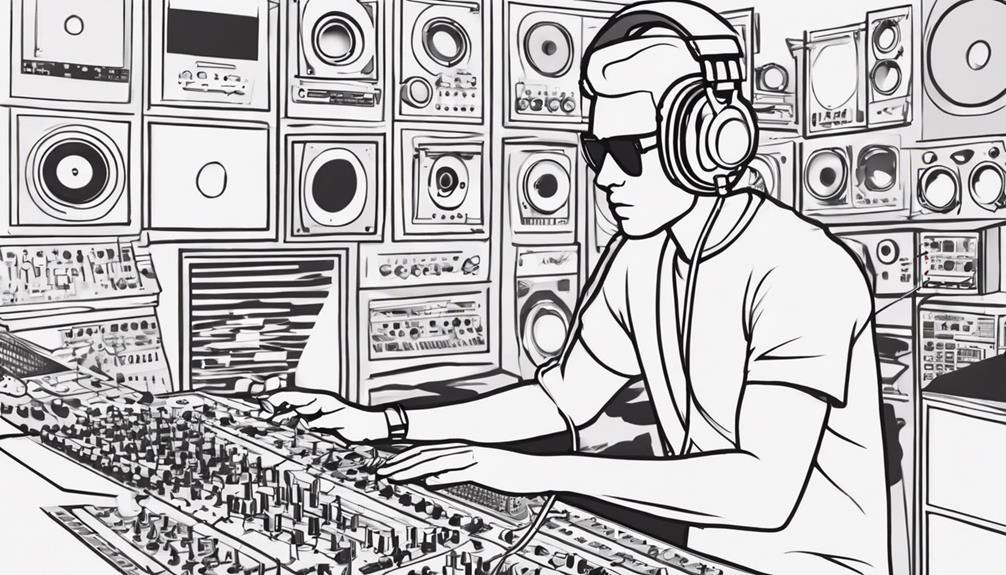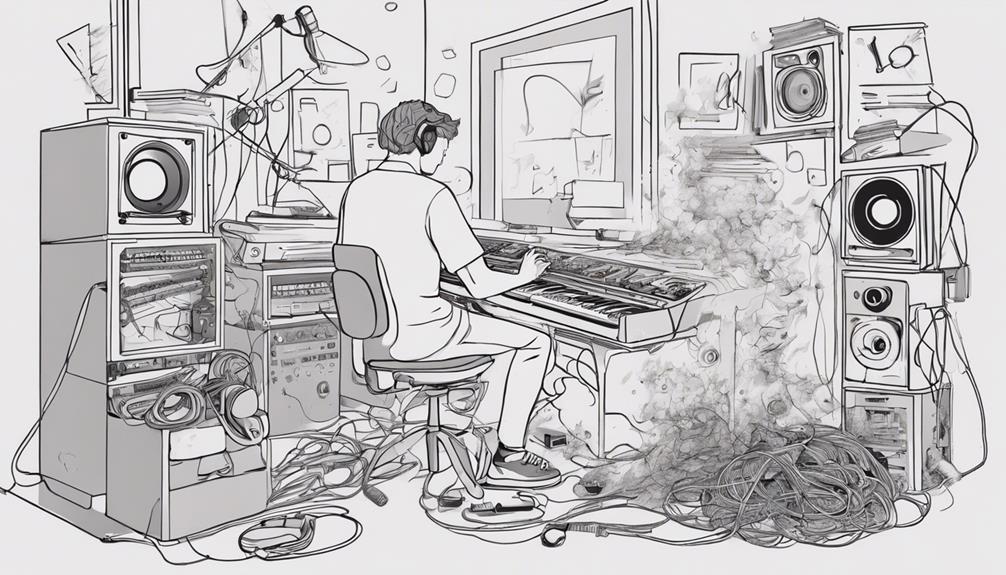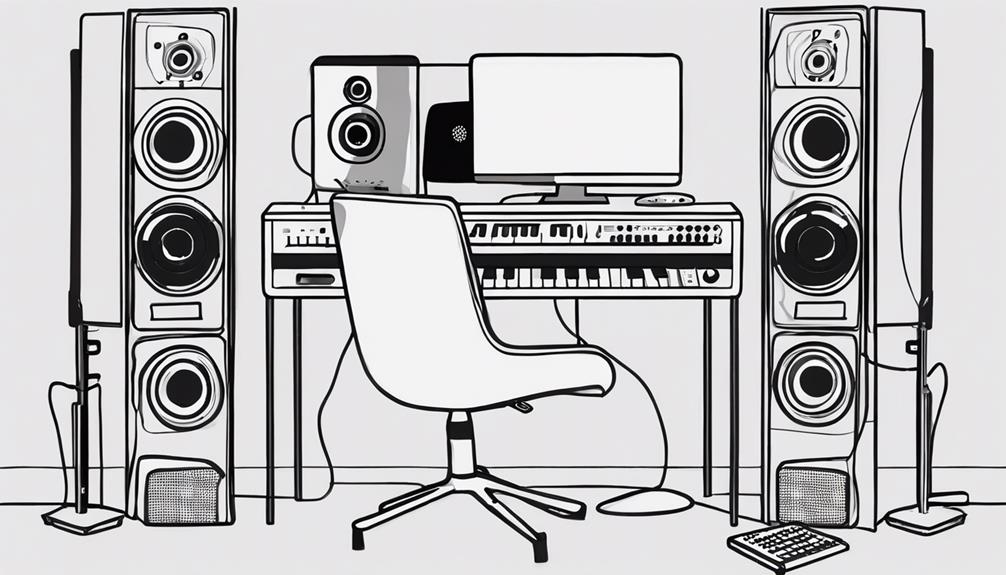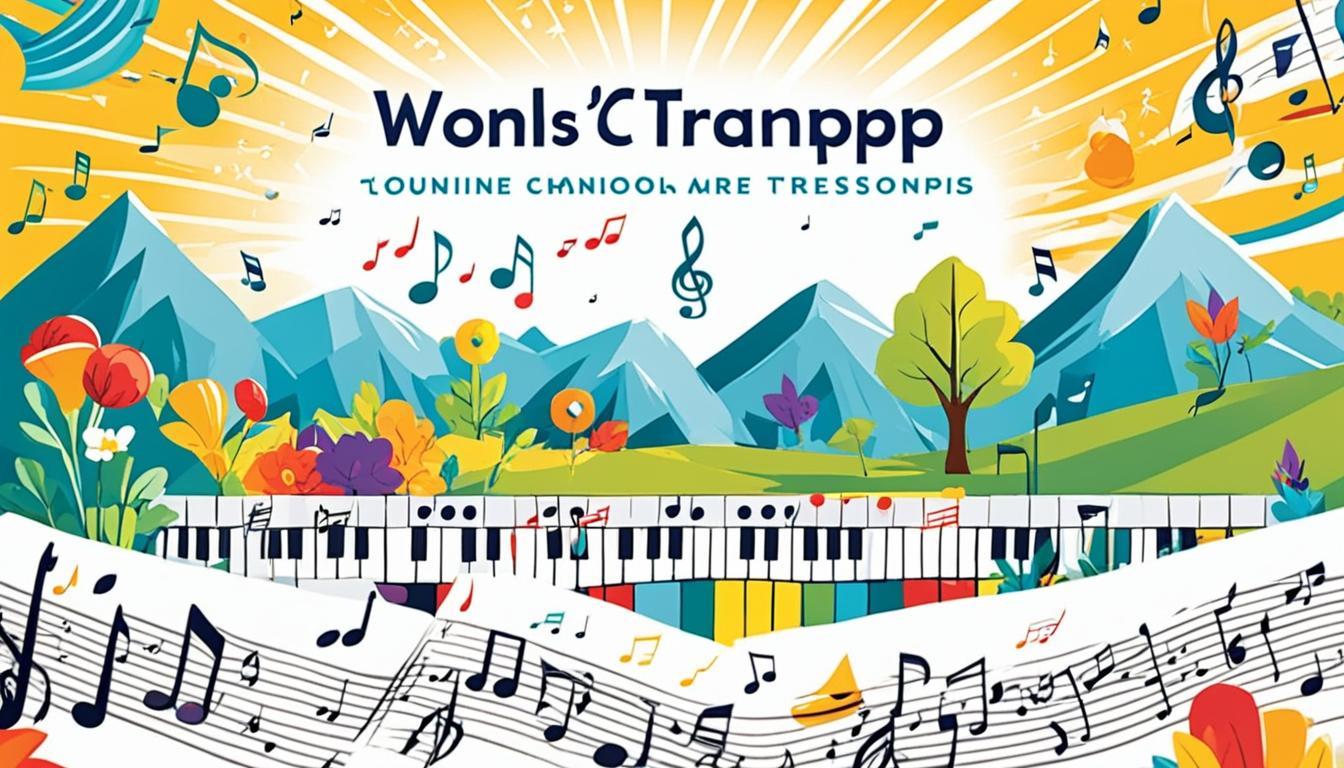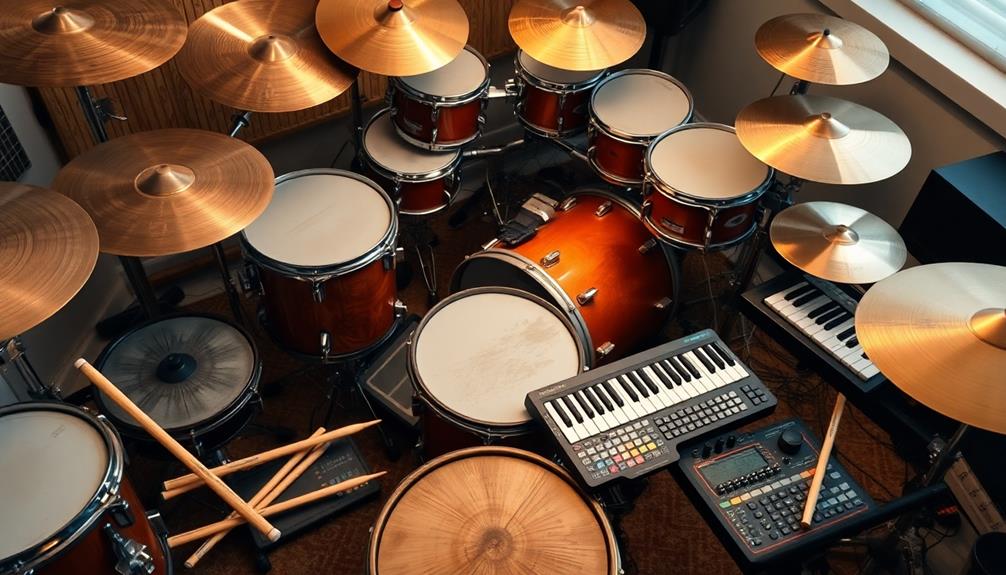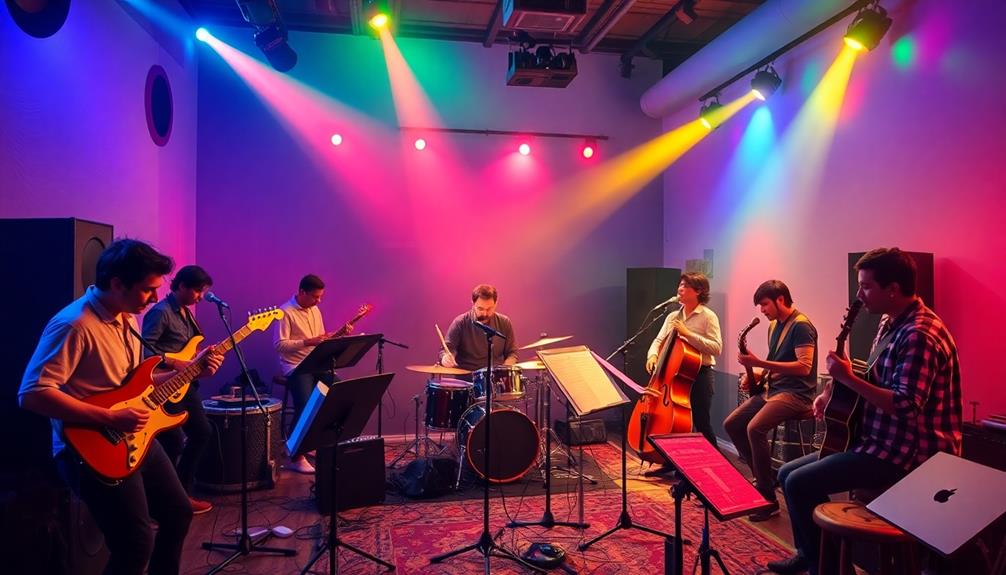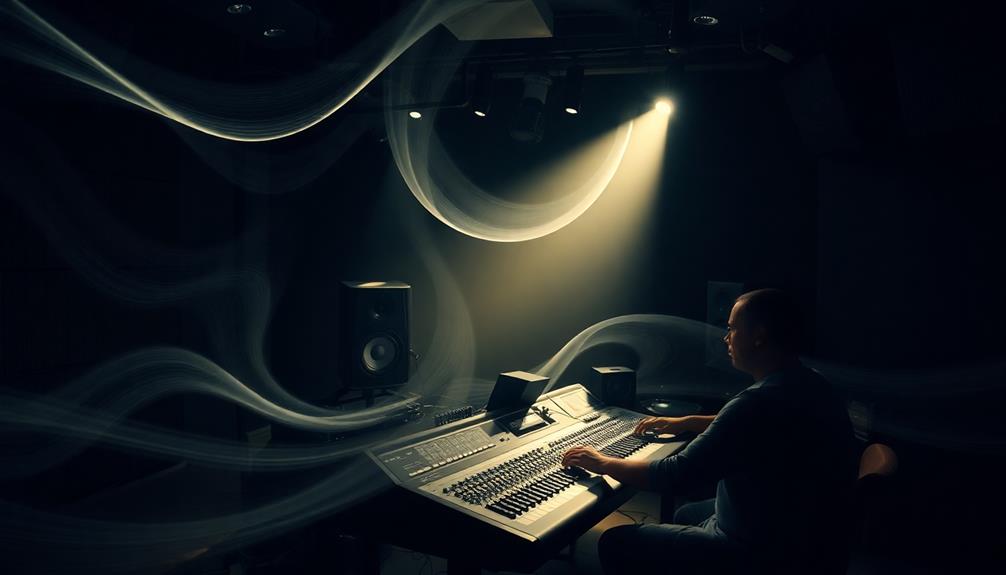The von Trapp family is a name known around the world. They are famous for their musical journey and lasting impact. Their story from Austria to escaping Nazi Europe captures hearts everywhere.
Georg von Trapp became a hero in World War I as a captain in the Austrian navy1. He married Agathe Whitehead, and they had seven kids, creating a loving family2. Later, in 1927, Georg married Maria Augusta Kutschera. They added three more children to their family1.
In the 1930s, during the Great Depression, the von Trapps turned to music1. Their love for singing paid off when they won at the Salzburg Music Festival in 1936, marking the start of their successful career in Europe1. But things changed when the Nazis took over Austria in 1938, forcing the family to leave their home12.
In September 1939, the von Trapp family arrived in New York, looking for a fresh start1. They came with their musical director, Rev. Franz Wasner, and secretary, Martha Zochbauer1. Yet, they faced difficulties, including being held at Ellis Island for checks1.
Despite obstacles, the von Trapp family’s talent stood out. They settled in Stowe, Vermont2. They charmed people worldwide with their music and recordings2. Even after they stopped touring in the 1970s, the von Trapp children succeeded in many areas, like medicine and farming23. Today, the von Trapp family’s story continues to inspire and entertain people across generations.
Key Takeaways:
- The von Trapp family’s musical journey and enduring influence have captivated a global audience.
- Georg von Trapp, a national hero and captain in the Austrian navy, married Agathe Whitehead and had seven children. He later married Maria Augusta Kutschera, and they had three children together.
- The von Trapp Family Singers gained recognition by winning first place in the Salzburg Music Festival and went on to achieve success across Europe.
- The von Trapp family fled Austria in 1938 after it was annexed by the Nazis and resettled in the United States in 1939.
- After retiring from touring, the von Trapp children pursued diverse careers, showcasing their versatility and adaptability.
The Real Story of the Von Trapp Family
While “The Sound of Music” is loved for its heartwarming tale, it’s important to check its historical truth. The movie made changes and left out parts for drama.
The von Trapp family didn’t escape the Nazis by hiking over mountains to Switzerland. Instead, they took a train to Italy4. This is one of many differences between the film and what really happened.
In the film, Captain von Trapp seems harsh, but he was actually kind and loving4. This shows the story is more complex than it appears, challenging how we see their family life.
The movie also got some historical facts wrong. For example, it changed the von Trapp children’s names and ages, and made up Liesl, the oldest child5. Maria von Trapp wasn’t the governess to all the children, but a tutor to one sick with scarlet fever5.
The family thought about singing professionally because they needed money, not because they were rich4. After the war, they even started a charity called “Trapp Family Austrian Relief Inc.”6. Knowing this offers insights into their real struggles and motivations.
Also, the von Trapps married ten years before they fled Austria, not right before as shown in the movie4. This fact highlights their strong family bond.
In the end, while “The Sound of Music” has entertained many, it’s vital to know it has changed some facts for fun. Realizing the true story of the von Trapp family lets us appreciate their legacy and the real challenges they faced on their remarkable journey.
The Early Beginnings of the Von Trapp Family
The Von Trapp family’s journey began in the late 1800s. Georg von Trapp, a naval officer, wed Agathe Whitehead7. This was in Salzburg, Austria. After losing his wife, Georg found solace in music8. He started a family choir, the start of the Von Trapp Family Singers8.
The Rise of the Von Trapp Family Singers
The von Trapp family started gaining widespread attention in the 1930s. They became famous in Austria and Europe, winning people’s hearts9. Their big break came when they won the Salzburg Music Festival in 19369.
The seven von Trapp children were naturally talented in music. They expanded their family, adding three more children9. This musical talent continued through generations, creating a lasting heritage.
After escaping Austria, the family moved to Stowe, Vermont. They opened a music camp and a lodge there9. They focused on their music and teaching others.
Maria von Trapp sold her book’s rights, leading to movies about their story. Movies like Die Trapp-Familie in 1956 and its sequel in 1958 made their story known worldwide9.
Despite being famous from The Sound of Music, they focused on their lodge in Vermont9. They committed themselves to music and the lodge, attracting music lovers and nature enthusiasts.
The family faced many challenges on their way to fame. Their life was more complex than The Sound of Music showed9. Together, they overcame these challenges, creating a lasting legacy of music and unity.
The Sound of Music and the Von Trapp Family’s Legacy
The film “The Sound of Music” made the von Trapp family famous but changed some real-life details. The Von Trapps kept making music, touching hearts all over the world.
The Broadway debut of The Sound of Music was in 1959, grabbing five Tony Awards10. London welcomed the musical in 1961 at the Palace Theatre10. In 1965, a movie based on the musical won five Oscars10. This movie is loved and watched worldwide even today11.
The von Trapp family’s story before World War II touched many11. Their escape from Austria showed bravery11. “The Sound of Music” shows how songs can bring people together, even during war11. It also highlights the family’s fight against the Nazis, showing their strength and unity11.
Oscar Hammerstein worked on The Sound of Music before he died10. The musical, based on Maria von Trapp’s memoir, changed some facts for drama10. The story tweaks included different names and events10.
| Key Information about The Sound of Music and the Von Trapp Family |
|---|
| The original Broadway production of The Sound of Music opened in 1959 and won five Tony Awards, including Best Musical, out of nine nominations10. |
| The first London production of The Sound of Music opened at the Palace Theatre in 196110. |
| The musical was adapted into a film in 1965, which won five Academy Awards, including Best Picture10. |
| The Sound of Music continues to be widely broadcast around the globe, indicating its enduring popularity as a film11. |
| The story of the von Trapp family’s idyllic moments before World War II resonated with audiences, showcasing a snapshot of happiness during a challenging period11. |
| The von Trapp family’s escape from Austria due to the war sparked fascination, highlighting the courage and solidarity displayed by many in similar situations11. |
| “The Sound of Music” emphasizes the power of music as a unifying force, illustrating how it can triumph over difficult circumstances such as war11. |
| The film portrays the von Trapp family’s resilience against the oppressive forces of the Nazis, emphasizing their solidarity and resistance11. |
| The Sound of Music was the last musical collaboration between Rodgers and Hammerstein, with Oscar Hammerstein passing away nine months after the Broadway premiere10. |
| The musical is based on the 1949 memoir of Maria von Trapp, titled “The Story of the Trapp Family Singers”10. |
| Details of the history of the von Trapp family were altered for the musical for dramatic effect, including changing names and certain events10. |
Songs like “Do-Re-Mi” and “Edelweiss” keep the von Trapp legacy alive10. The musical features many songs that tell the von Trapp story10.
But there’s more to the von Trapps than just music and movies. Sister Doctor Martin Joseph worked hard in Papua New Guinea for almost 30 years amid a severe tuberculosis crisis12. Maria von Trapp herself influenced choir singing in Papua New Guinea12. In 1957, parts of the von Trapp family visited Fergusson Island. There, they lived simply, without modern comforts12. This choir, started by Maria von Trapp, is still singing under Cabrini Lemeki’s lead12. Maria Franziska’s choir training methods and the original sheet music are still cherished12.
The story and songs of the von Trapp family win hearts everywhere. Their story, mixed with music, keeps inspiring people. This makes sure the von Trapp legacy never fades11.
Johannes von Trapp’s Insights on the Family’s Story
Johannes von Trapp, the youngest of the von Trapp family, brings us unique stories. His insights reveal the true experiences of his family. Being one of the last people who lived through it, Johannes gives us a special look into their legacy.
He shares things that show how different his family was from The Sound of Music. Johannes tells us his grandma, Maria, was actually much tougher than the movie shows13. He also says his dad, Captain Georg von Trapp, was very loving and played a big part in their lives, unlike his cold image in the film13.
Johannes points out that some characters in the movie were made up or loosely based on real people13. He also talks about how there were actually ten von Trapp children, not seven. This was due to Captain Georg von Trapp’s second marriage13. Johannes’s stories give us a closer look at the family and the changes made for their film adaptation.
Furthermore, Johannes shares that the family’s music started before Maria came, thanks to their mother, Agathe13. This shows how music was a big part of their life from the beginning. These stories help us understand their musical legacy better.
Johannes von Trapp’s stories let us into his family’s personal life and their amazing journey13. Sharing these moments, Johannes helps us see the full story of the von Trapp family and its lasting effect on music and pop culture.

| Insights from Johannes von Trapp |
|---|
| The real-life Maria von Trapp was strong-willed and occasionally abrasive, unlike her softened character in the musical13 |
| Captain Georg von Trapp was warmer and more involved with his children than depicted in the musical13 |
| Max Detweiler and Elsa Schraeder were composite or loosely based characters in the musical13 |
| The von Trapp family had ten children, with different names and ages13 |
| The musical journey began before Maria’s arrival, instigated by the children’s mother, Agathe von Trapp13 |
The Von Trapp Family’s Enduring Fame
The von Trapp family quickly became famous, touching hearts worldwide with their songs and inspiring story. They moved from Austria to global fame, leaving a permanent mark on entertainment. Their legacy keeps growing today.

They hit it big on Broadway and in a Hollywood movie, making the Von Trapps a big name. People of all ages loved their performances, making them stars.
The von Trapp kids worked hard on music every day, led by their caring mother. This hard work showed how important music was to them. Their talent was clear in every show.
Their fame reached more than just music fans. Their story, filled with family love, patriotism, and always doing the right thing, touched many. This is why they remain famous, reaching people everywhere.
After World War II, the family went back to Austria in 1950. But they didn’t feel at home anymore. So, they moved to the United States to continue their music.
The story of the von Trapp family has been loved for a long time. Their musical journey, from Broadway to movies, has deeply affected entertainment. They still inspire people today.
In 2001, four von Trapp siblings started their own music group. They performed for over ten years then chose different paths14..
The von Trapp story teaches us about the strength of music, love, and never giving up. Their impact is still felt today, making their music and story unforgettable.
The Von Trapp Family’s Immigrant Journey
The von Trapp’s move to America shows the struggles many immigrants face. They worked extra jobs and saved to buy land in Vermont. Here, they started the Trapp Family Lodge, still run by their family15..
This story highlights the need for better immigration policies. Making citizenship easier helps build a diverse and strong economy. It also honors the contributions of immigrants throughout history15..
As countries help skilled workers immigrate, the von Trapp’s story reminds us of immigration’s positive effects. They show how immigrants contribute to society’s growth15..
The von Trapps are famous for their amazing talent and hard work. Their story continues to inspire, leaving a lasting impact on music. They motivate us to follow our dreams with dedication.
The Von Trapp Family Lodge and Its Legacy
The von Trapp family is known for their music and the Trapp Family Lodge16. This lodge, first called Core Unum, sits beautifully in Stowe, Vermont. It brings together Austria’s charm and Vermont’s stunning views.
After a fire in 1980, the lodge was rebuilt with touches of Austria and Vermont16. Now, guests can enjoy the original home’s feel with modern comforts.
The lodge now spans over 2,600 acres, bigger than its original 700 acres17. It has a 65-kilometer trail network for outdoor fun for everyone16. Over 1,100 acres of land are protected for nature16.
Nordic skiing got popular in America thanks to the lodge17. In the 1960s, it became a key spot for this sport. Johannes von Trapp brought 50 skis from Norway and hired a ski instructor17.
The lodge still supports skiing today16. It has a ski center for lessons and rentals. Skiers of all levels, including champions, have trained here16. Skilled instructors add to its skiing fame16.
But there’s more to the lodge than just skiing18. It’s also a cultural spot with many events. “The Sound of Music” shows were so loved, they added more. The lodge’s big meadow hosts these popular events18.
The Trapp Family Lodge blends culture, nature, and sports beautifully1618. It’s a place for skiing or enjoying music. Everyone is invited to see the von Trapp family’s legacy1618.

The Impact of the Von Trapp Family’s Story
The von Trapp family has touched hearts globally. Through their music and strong will, they’ve inspired many. Their tale is all about love, unity, faith, and courage, which people of all ages find moving.

On December 7, 1941, the Von Trapp Family Singers19 performed in Lowell. This date is also when Pearl Harbor was attacked. Their performance offered hope and togetherness during difficult times.
Throughout America, their stunning performances made a deep impression19. They settled in Stowe, Vermont. There, they built the Trapp Family Lodge. This beautiful place was where they lived and worked on different projects including music19.
Maria von Trapp won over people with her charm. Her TV appearances made her a beloved celebrity. Even in retirement, the von Trapp story remained popular19.
The Von Trapp Family Singers’ brand is still known for quality music and learning19. They sold various books and course materials that showcase their unique style. Their influence remains strong in the music world19.
The Sound of Music, based on their story, was a hit on Broadway in 195920. This play celebrated their journey with touching stories and memorable songs.
The love story of Maria and Baron Georg von Trapp also fascinated many20. Their proposal in 1927 showed their deep connection. Together, they sang across Europe, dazzling many with their voices20.
The von Trapp family moved to America in 193820. They performed worldwide until 195520. Their music and spirit captivated people everywhere.
The von Trapp’s escape from Austria shows their bravery and cleverness. They fled just in time, keeping their family safe from the Nazis21.
Maria von Trapp sold her book’s rights, leading to films about their adventures21. These movies brought their inspiring story to even more people.
| Statistical Data | Description |
|---|---|
| The von Trapp family won first place in the Salzburg Music Festival in 1936 | – These wins showed their musical skill and fame in Europe21 |
| Georg von Trapp was 25 years older than Maria Kutschera | – This highlights their age difference21 |
| The von Trapp family had a total of 10 children, including seven from Georg’s previous marriage and three more with Maria | – It shows the large family size found in The Sound of Music21 |
| The family fled Austria one day before the borders closed | – Their escape from the Nazis was just in time21 |
| The von Trapp family settled in Stowe, Vermont | – This points to their life and work after the war21 |
| Johannes von Trapp expressed that the von Trapp family didn’t earn much money from The Sound of Music | – He talked about the financial reality versus the film’s portrayal21 |
| Maria von Trapp emphasized the importance of following the will of God in life’s decisions | – This reflects their strong faith during hard times21 |
The von Trapp family’s story continues to be an inspiration and joy around the world192021. They stand for timeless values and remind us that we too can make a difference. Their legacy is a story of love, courage, and the power of music.
The Continued Influence of the Von Trapp Family’s Music
The Von Trapp family’s music still touches people all over the world today. Their talent and musical background make listeners feel inspired and entertained. Their impact has woven into the fabric of our culture.
In the late 1940s and early ’50s, they gave over a hundred concerts a year. They amazed people worldwide22. Each show earned them about $100022. They also made two Yuletide albums that were a big hit22.
Beyond concerts, they became Columbia’s top choir group22. The “The Sound of Music” musical and movie made them even more loved globally22. RCA Victor brought back their 1939 songs, reaching new fans22.
Even after they stopped performing in 1955, they recorded again. They made an album of “The Sound of Music” songs22. This boosted their fame and made their old music popular again22.
“The Sound of Music” film in 1965 shared their story with more people. It had more drama but kept the spirit of their real life23. Their escape from Austria showed their brave spirit23.
The film changed some details, like the children’s names and Georg’s character. But it didn’t take away from their real talent and story23. It also highlights why knowing your family’s history is important23.
The Von Trapps have loved music for generations. Agathe von Trapp shared this love with her kids24. She and Georg Ritter von Trapp, married in 1911, came from musical families24. With Frederick C. Schang’s help, their singing group succeeded24.
Each family member added something special to their music. For example, Rupert had great vocals and played the tenor recorder well24. Martina also shone with her soprano voice and playing the recorder24. Werner and Eleonore added to the family’s rich musical legacy too24.
Johanna’s soprano voice and recorder playing stood out. Alvario Villa’s voice made their Australian and New Zealand tours memorable24. New musicians joined them between 1949 and 1956, keeping the family’s music alive24.
The Von Trapp family’s music keeps inspiring and entertaining us. Their amazing skills and story continue to impact listeners. Their concerts and recordings prove their lasting legacy and love for music2224.
Conclusion
The Von Trapp family’s story touches hearts worldwide. Starting from Austria, they became famous for their music. They show us love, resilience, and spirit.
Even when money was tight in the 1930s, they didn’t give up. The abbey and Father Wasman helped, making him their music manager25. Their songs brought them financial support. They got to perform at the 1937 Salzburg Festival and toured Europe and America26.
Their journey was made famous by “The Sound of Music” as a Broadway musical and movie27. The film and play changed some details, but their moving story stayed the same27.
Now, the Von Trapp legacy keeps going with their music, a hotel, brewery, and music camp26. Their amazing journey reminds us of family, love, and bouncing back. They will always be known for their music and inspiring story252726.
FAQ
Is “The Sound of Music” an accurate representation of the von Trapp family’s story?
How did the von Trapp family’s musical journey begin?
How did the von Trapp family gain recognition?
What impact did “The Sound of Music” have on the von Trapp family’s legacy?
What insights does Johannes von Trapp offer about the family’s journey?
How did the von Trapp family’s fame grow?
What is the significance of the Trapp Family Lodge?
How has the von Trapp family’s story impacted people?
Does the von Trapp family’s music still live on?
What is the legacy of the von Trapp family?
Source Links
- https://www.archives.gov/publications/prologue/2005/winter/von-trapps-html – Movie vs. Reality: The Real Story of the Von Trapp Family
- https://medium.com/@treemily/the-fascinating-story-of-the-von-trapp-family-tree-7927332d09a2 – The Fascinating Story of the Von Trapp Family Tree
- https://treemily.com/blog/the-von-trapp-family-tree/ – The story and a Family Tree of a real Von Trapp Family | Treemily
- https://www.bard.org/news/fact-or-fiction-the-real-story-of-the-von-trapps/ – Fact or Fiction? The Real Story of the Von Trapps | Utah Shakespeare Festival
- https://www.history.com/news/the-real-history-behind-the-sound-of-music – The Real History Behind “The Sound of Music” | HISTORY
- https://www.sound-of-music.com/the-real-story/the-trapp-family/ – The story of the Trapp family and their way to America
- https://campus.plymouth.edu/etc/about-etc/past-productions/the-real-vonn-trapp-family/ – The Real Vonn Trapp Family – Educational Theatre Collaborative
- https://en.wikipedia.org/wiki/Trapp_Family – Trapp Family
- https://allthatsinteresting.com/von-trapp-family – The Real Story Of The Von Trapp Family Who Escaped The Nazis And Inspired ‘The Sound Of Music’
- https://en.wikipedia.org/wiki/The_Sound_of_Music – The Sound of Music
- https://www.salzburgerland.com/en/the-background-and-how-the-sound-of-music-became-so-popular/ – How The Sound of Music Won Over The World
- https://www.abc.net.au/news/2017-02-06/trapp-family-singers-missionary-legacy-lives-on-in-png-choir/8211156 – Do Re Mi in PNG: The von Trapp legacy in Papua New Guinea
- https://breakingcharacter.com/the-truth-behind-the-sound-of-music/ – The Truth Behind… The Sound of Music – Breaking Character
- https://www.classicfm.com/music-news/videos/von-trapp-great-grandchildren-sing-impromptu-edelweiss/ – Real-life Von Trapp great grandchildren sing a breathtaking, impromptu ‘Edelweiss’
- https://www.onepercentforamerica.org/the-guide/truth-behind-sound-music – The Truth Behind The Sound of Music | One Percent for America
- https://vtskiandride.com/setting-first-tracks-trapp-family-lodge-celebrates-50-years/ – Setting First Tracks: How The von Trapps Created A Nordic Legacy
- https://www.vtcng.com/stowetoday/spotlight/trapp-family-lodge-a-kick-and-glide-legacy-now-50-years-old/article_d49d0f12-01ea-11e8-aa8d-57ec1dbdda82.html – Trapp Family Lodge: A kick and glide legacy, now 50 years old
- https://www.burlingtonfreepress.com/story/life/arts/2024/06/19/sound-of-music-maria-von-trapp-family-musical-concert-stowe-vt-lyric-theatre-vso/74139905007/ – ‘The Sound of Music’ arrives at Trapp Family Lodge as family learns to embrace the musical
- https://richardhowe.com/2024/01/12/follow-every-rainbow-the-life-of-the-real-maria-and-the-von-trapp-family-singers/ – Follow Every Rainbow – the Life of the Real Maria and the Von Trapp Family Singers
- https://www.smithsonianmag.com/smart-news/real-life-story-maria-von-trapp-180967182/ – The Real-Life Story of Maria von Trapp
- https://www.allthatsinteresting.com/von-trapp-family – The Real Story Of The Von Trapp Family Who Escaped The Nazis And Inspired ‘The Sound Of Music’
- https://rodgersandhammerstein.com/the-trapp-family-singers-the-sound-of-their-music/ – The Trapp Family Singers: The Sound of their Music – Rodgers & Hammerstein
- https://pastprologue.wordpress.com/2012/01/19/the-sound-of-music-effect/ – The Sound of Music Effect
- https://www.vontrapp.org/trapp-family-musicians.html – vonTrapp.org | Musicians
- https://mb-henry.com/2019/03/19/the-real-von-trapps-a-favorite-musical-vs-the-history/ – The Real Von Trapps – A Favorite Musical vs. the History – M.B. HENRY
- https://www.rutlandherald.com/myth-and-reality-the-real-story-behind-145-the-sound-of-music-146/article_dc1a1a56-7ad7-5d33-923b-bc10700b0da0.html – Myth and reality The real story behind ‘The Sound of Music’
- https://thehistoricalnovel.com/2021/09/07/the-history-behind-the-sound-of-music/ – The History behind The Sound of Music


